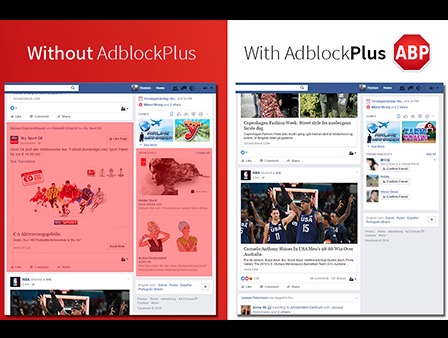Adblock Plus Faces Backlash From Consumers and Facebook

The smarter way to stay on top of broadcasting and cable industry. Sign up below
You are now subscribed
Your newsletter sign-up was successful
On Sept. 13, Germany-based Adblock Plus launched an updated beta version of its Acceptable Ads Platform, one that simplifies the whitelisting process of ads that can be seen even with ad blocking software, if they meet requirements.
That announcement resulted in a backlash among Adblock Plus users, with accusations that the company was lining its pockets (larger online companies pay Adblock a fee to have ads displayed) and defeating the purpose of ad blocking itself.
Ben Williams, operations manager for Adblock, spoke with Next TVabout the reasoning behind Acceptable Ads, the reactions of consumers and industry groups and the latest war Adblock finds itself in: with Facebook. An edited transcript follows.
NTV:What’s the latest with the Acceptable Ads Platform and what are the benefits associated with it?
Ben Williams: We’re looking to help give back revenue to publishers who lose revenue to ad blocking, and we wanted to do it on Adblock’s terms, which is why you’ve always been able to turn off Acceptable Ads. Long story short, we’ve been trying to strike a balance, and the platform is nothing more than a technological extension of the program, allowing especially to whitelist faster. It doesn’t change the program itself; it just makes it technically easier.
NTV:Obviously there’s been reaction from people who say it’s a money-grab for Adblock. How do you respond to the criticism we’re hearing?
BW: I think those people misunderstand our motivations here. We’ve already had a successful whitelisting program that’s allowed us to monetize, but we feel we’ve also provided a positive impact in the often black-and-white world of ad blocking and advertisers. This does not have a really huge impact revenue-wise, it just makes it easier for more people to whitelist.
The smarter way to stay on top of broadcasting and cable industry. Sign up below
NTV:Adblock has announced it’s putting together a committee to oversee Acceptable Ads. Speak a bit about who we can expect to be included, and what’s going to be their charge?
BW: We’re currently recruiting people, and don’t have any names yet. We’ll have people representing the advertising side, ad tech and publishers, and we’ll have people representing the user side, nonprofits, university professors and privacy advocates. We feel the two sides will balance each other, and make the Acceptable Ads process independent. We’ve been proud to do Acceptable Ads, because we feel it’s a more productive form of ad blocking, but it’s been difficult to spread the idea to other ad blockers. The idea here is to put a firewall between the criteria and the revenue stream, make it independent of us, make it transparent and make it acceptable to other ad blockers.
NTV:Recently, Randall Rothenberg, president and CEO of the Interactive Advertising Bureau, made another speech attacking for-profit advertising blocking. Has there been any progress working with groups like that?
BW: Certainly, we have very good relationships with other parts of IAB and other country chapters of the IAB. Randall is kind of the outlier. Other groups realize what we can do to reach the ecosystem of ad block users, and do it on terms that tell publishers that they can reach them in non-traditional ways of advertising.
NTV:Of late there’s been a lot of back and forth between Adblock and Facebook over ad blocking on their site. What’s the latest there?
BW: The thing with Facebook is it’s gone back and forth several times, where they would circumvent us, and then we would find a workaround. At this point, they have the upper hand, but we have a fix coming, and we’re confident that we’ll keep playing this cat-and-mouse game. I don’t think Facebook is taking the right approach with its users, that we should be giving users more control, not less. That’s why we let users opt out of Acceptable Ads if they want to.
NTV:What’s next for Adblock?
BW: We’re looking at our platform and how to go forward with publishers, who’ve flocked to us in droves, with more than 1,000 signing up for it the first day. I think we’ll hit 10,000 soon. We also need to better explain what we’re doing, and what it’s about. We need to keep underlining that this is an extension of what we’ve already done.
